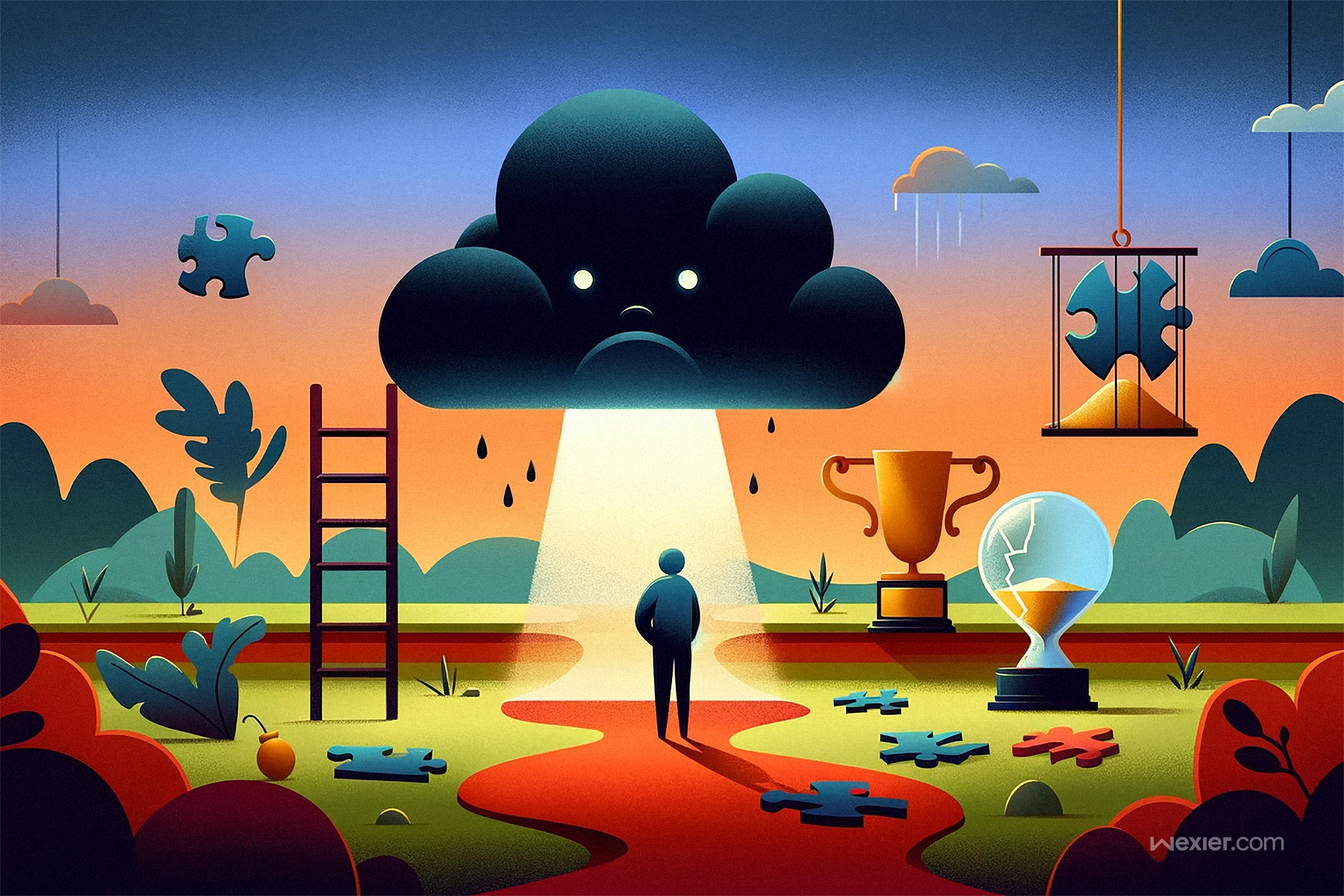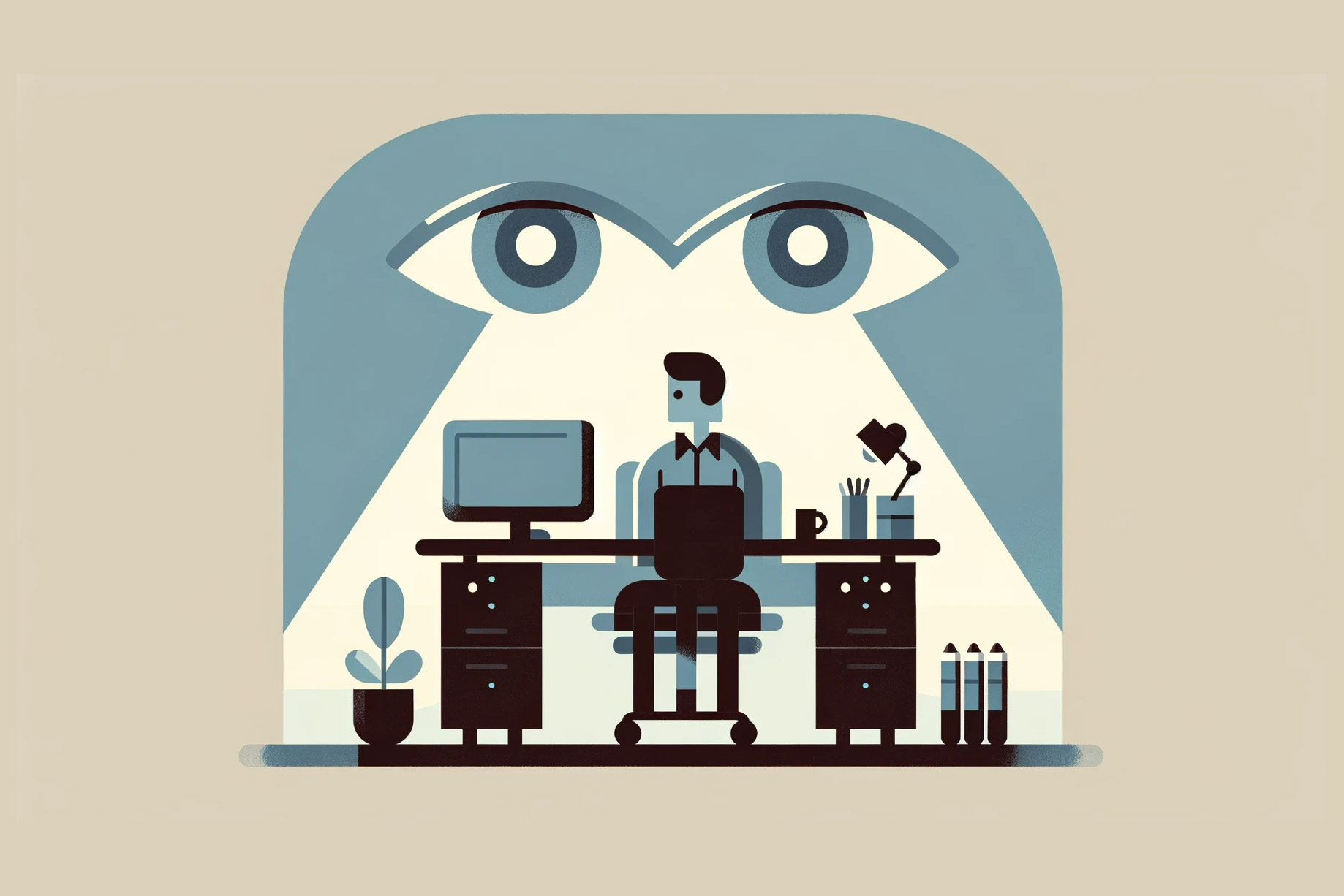Here’s a story for you. I remember the moment I clicked “Purchase” on that MIDI keyboard controller, my heart raced like I’d just signed a record deal, because after years of making music through cheap apps and websites, I finally had real gear to create with—a tool that unleashed the possibilities. No more sound quality excuses holding me back. This was it. I was going to put together the sickest tracks and launch my career as an EDM producer!
Or at least, that’s what I envisioned before reality set in. What I didn’t expect was the constant tug-of-war between small victories and confidence-crushing stumbles.
In the honeymoon phase with my shiny new controller, everything felt seamless. I dove into music theory, learned shortcuts on the hardware and software, and churned out original melodies that didn’t even make me cringe. With every new viable snippet, I rode higher on a wave of possibility. I thought I had this production thing on lock. Then came the speed bumps.
I had writer’s block for days. Mixes that fell flat no matter how I EQ’d them. Sound design experiments ending up in the recycle bin. The frustrations and doubts started seeping in. I pushed forward, believing it was just newbie woes that my burgeoning producer flair would overcome in due time. But the more I struggled, the more I questioned my artistry. Was I just an imposter out of my depth? A “bedroom pretender” masquerading as a musician? My thirst for sonic perfection started costing me hours of sleep. The joy drained away track by imperfect track. Each less-than-banging creation became a hit to my musical confidence.
Eventually I realized the problem ran deeper than fleeting self-doubt. Failure rattled me because it attacked my core need as a creator—that innate desire to make magic from nothing and feel competent in the process. When reality didn’t match my sound quality ideals, my musical swagger took the hit, but over months of trial and error, I changed lenses.
I learned to extract gems from critical feedback, make the most of my toys’ capabilities, and explore unfamiliar creative territory. I began viewing setbacks as fuel for growth rather than proof of my shortcomings. It was ultimately about balance—embracing confidence alongside humility. Owning my abilities while simultaneously pushing their limits. I started seeing failure as an unwanted but necessary guide, unlocking dimensions to my sound and clearing the way for creativity to blossom.
Now when I cue up those early musical missteps, I’m grateful for the friction along the way. My journey from starry-eyed amateur to seasoned home producer wasn’t seamless, but those stumbling blocks helped me thrive, not just survive. And now, as I reflect now on the peaks and valleys of my home music production journey, that tug-of-war between progress and setbacks reminds me a lot of the findings from a study on failure I read about.
Failure’s Blow to Confidence and Morale
In a 2019 experiment, more than 400 participants embarked on a linguistic journey, attempting to decipher a mysterious, fabricated language. Tasked with identifying pairs of runes, representing animals and non-living objects, these individuals faced a unique challenge. Little did they know, the answers given in the initial round shaped the meaning of the runes in the subsequent phase.
The participants found themselves in two groups during the first round—those whose answers were consistently marked correct, regardless of accuracy, and those forced to confront failure with every question. Surprisingly, despite entering the second round on an ostensibly level playing field, the successful individuals from the initial phase continued to outshine their counterparts who had been labeled as failures.
Common wisdom often paints failure as a necessary stumbling block on the road to improvement—a teachable moment. However, the reality is more complex. Learning from failure is not always a straightforward process, especially when the experience is demoralizing, overwhelming, or downright confusing.
So, what prevents us from transforming our mistakes into mastery? One prominent hurdle is the inherent pain associated with failure. The desire to perceive oneself as capable and competent clashes with the bruising impact of failure, threatening our self-image. In a post-study survey, participants who faced failure reported significantly lower levels of self-confidence, suggesting that the emotional toll can linger beyond the moment.
It’s tempting to dismiss this pain as a temporary setback, but studies suggest that profound threats to self-esteem can impede the brain’s ability to process new information. Essentially, the emotional toll of failure can undermine our capacity to learn and grow. However, our ability to tolerate failure is also influenced by our relationship with the task at hand.
Beginners Seek Validation, Advanced Students Embrace Critique
A 2011 study involving American students in French courses revealed that beginners sought positive reinforcement, while advanced students welcomed critical feedback. This nuanced response hints at the evolving nature of one’s tolerance for failure based on experience and investment in a subject.
Experts posit that beginners, still testing the waters, crave praise as a motivational tool. In contrast, advanced students, deeply invested in their pursuits, exhibit a higher tolerance for mistakes, viewing them as an integral part of the learning process. Yet, regardless of expertise, learning from successes tends to be more straightforward than learning from failures. Picture receiving your exam grade—acing it provides a clear signal of successful study choices, enabling you to replicate them. However, if you falter, the reasons could be multifaceted—insufficient study, incorrect information, or unforeseeable exam content.
In such cases, the ambiguity surrounding failure makes it challenging to identify the precise areas for improvement. While the desire to learn from failures is natural, fixating on them can overshadow your successes. Cultivating a growth mindset involves being resilient, but it also entails acknowledging and building upon your achievements.
Focus on Strengths and Leverage Successes
The psychology surrounding failure is an intricate web of various dynamics related to emotions, identity, and the learning process as a whole. Effectively maneuvering this maze requires maintaining an agile equilibrium—viewing failures as springboards for advancement while still celebrating victories that bolster confidence.
The emotional residue left by failure can insert itself into the learning journey in stealthy ways. Beyond just temporary sadness, blows to self-esteem have been shown to physiologically impact one’s cognitive faculties. Neural connections vital for processing new information and integrating lessons do not fire as rapidly in those still shaking off failure’s sting. It seeps into the foundational layers that determine how smoothly we can leverage mistakes as growth tools.
Therefore, merely knowing failure accelerates improvement is not enough—the mental framework surrounding those moments plays a major role. Do you view blunders as gradual steps en route to competence mastery? Or do failures pile up like imposing barriers to proving your capabilities? Each lens radically shapes motivation and permeability to critical feedback after mistakes.

Learners who primarily fixate on failures often do so at the expense of recognizing progress made and skills cultivated. Ruminating over what is not yet working overshadows celebrating strengths and successes already demonstrated. Striking the right self-awareness balance involves clearly highlighting both sides—areas requiring improvement and abilities with existing traction.
When this balanced mindset takes root internally, failures begin transforming from intimidating indictments to friendly feedback. Setbacks notify you where to keep honing techniques, not condemn you as incapable of eventual excellence. Each one acts like a guardian of potential, pushing you to unlock latent talent or creativity lying dormant. But without an integrated self-concept, those same lessons may fall upon deaf ears.
Ultimately navigating the winding corridors of failure hinges on agile mental reflexes. Being able to shift gracefully between humility when evaluating limitations and confidence when appraising demonstrated competencies. By focusing simultaneously on strengths being leveraged and skills still in progress, failure metamorphosizes into fuel propelling your next ascent to a higher peak of performance.










